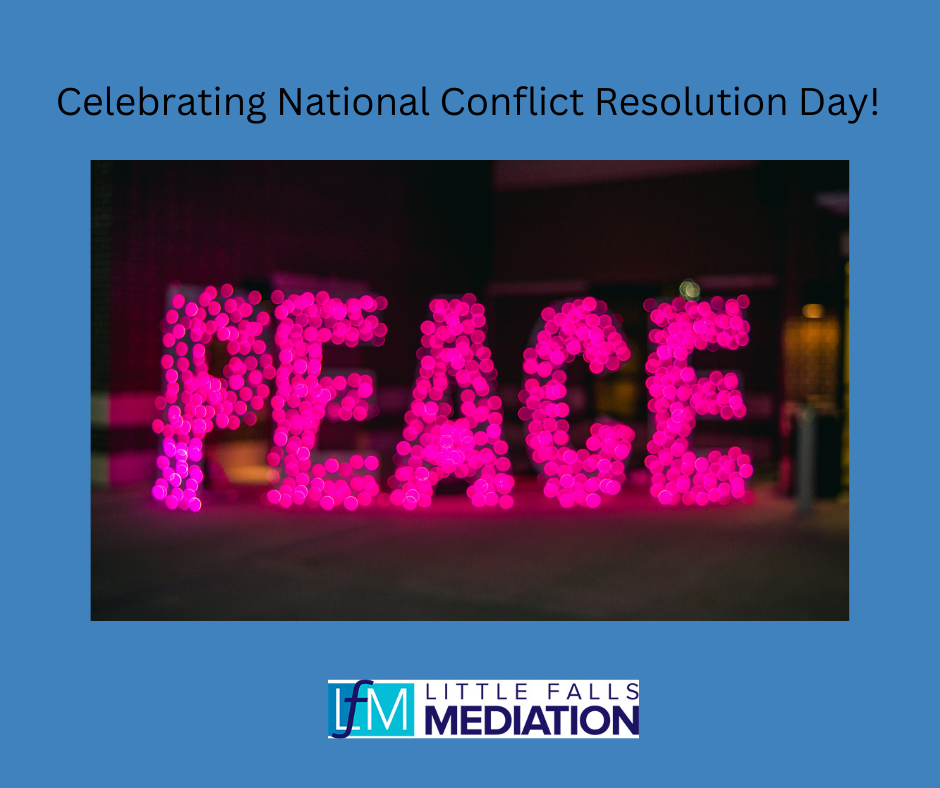 "Discourage litigation. Persuade your neighbors to compromise whenever you can.” --Abraham Lincoln This month we celebrated National Conflict Resolution Day on October 20, 2022. Mediation is a peaceful way of resolving conflict. I talk about what mediation is a lot to prospective clients and to current clients. Most people who contact me to explore mediation have never been part of a mediation before and are not sure what it is exactly. My job is to empower them with information so that they understand if mediation is right for them, what they can expect the mediation process to look like, what their role is, and what my role as mediator is. What is mediation? Mediation is a voluntary and confidential process that empowers the parties to a dispute to (1) identify the issues, (2) brainstorm solutions to each issue, one issue at a time, (3) evaluate those solutions to that first issue by asking specific questions and reality testing, and (4) come to a joint decision on that one issue. The parties will then decide what issue to discuss next, understanding that many issues are related to each other. They have maximum control over the process and the outcome. Mediation requires that the parties compromise, communicate, and collaborate with each other. What do you do as mediator? My job as mediator is to ensure that the parties feel comfortable and safe. Building rapport and trust is important. Mediators also must remain neutral at all times. I need to (1) listen carefully to each party, (2) clarify statements made and information exchanged for full understanding, (3) ask questions designed to elicit information the parties may need, (4) keep the parties on track and focused on the issues, (5) assist the parties in gathering information from each other and identify ways to gather other needed information, (6) help the parties test and examine potential agreements, (7) suggest when outside experts, such as tax consultants, financial neutrals, therapists, appraisers, and/or subject matter experts, may be needed, and (8) facilitate communication and negotiation. After joint decisions are reached on each identified issue, I draft an agreement that reflects those decisions. What if I can't get through a mediation session because I am so upset? Common emotions in disputes are grief, anger, and fear. Mediation is not a therapy session. But we acknowledge emotions. As a lawyer I was not trained to address emotion; as a mediator I am. Acknowledgement empowers the parties, creates a legitimate sense of control and fairness, and creates the opportunity to restore, preserve, or enhance relationships. We validate emotions by (1) noticing the presence of emotion, (2) being present and giving all of our attention to the person who is speaking, and (3) acknowledging and naming the emotion.
1 Comment
|
AuthorEllice Halpern, J.D., is a Virginia Supreme Court certified general and family mediator. Archives
June 2024
Categories |
Copyright © 2015 www.littlefallsmediation.com

 RSS Feed
RSS Feed